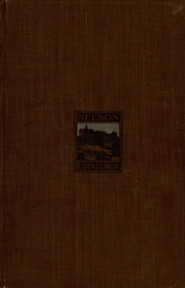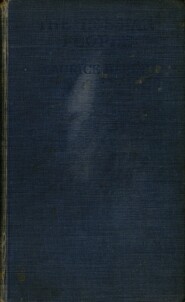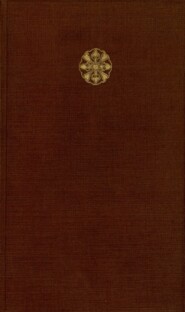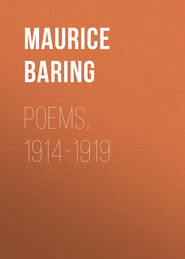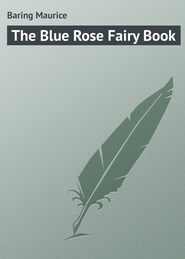По всем вопросам обращайтесь на: info@litportal.ru
(©) 2003-2024.
✖
Passing By
Настройки чтения
Размер шрифта
Высота строк
Поля
Friday, May 7th.
Riley left this morning. He has gone back to Paris. He is not going to take any immediate step.
Sunday, May 9th
I went to see Mrs Housman yesterday afternoon. I told her what Riley had told me. I asked her if she thought people could become Roman Catholics if they were not born so. She said she wished that she had not been born a Catholic so as she might have become one. She envied those who could make the choice. I asked her if she did not consider there was something unreal about converts. She said she thought English converts were in a very difficult situation which required the utmost tact. Many perhaps lacked this tact. She said that in Canada and America, where she had lived most of her life, the anti-Catholic prejudice as it existed in England did not exist, at any rate it was not of the same kind. "The nursery anti-Catholic tradition doesn't exist there."
She asked me what I had advised Riley to do. I told her I had dissuaded him from taking such a step and had begged him to wait. She said: "If he is to become a Catholic there will be a moment when he will not be able to help it. Faith is a gift. People do not become Catholics under the influence of people or books, although people and books may sometimes help or sometimes hinder, but because they are pulled over by an invisible rope – what we call Grace."
I told her I would find it difficult to believe that a man like Riley would believe what he would have to believe. She asked me whether I found it difficult to believe that she accepted the dogmas of the Church. I said I was convinced she believed what she professed, but that I thought that born Catholics believed things in a different way than we did. I did not believe that this could be learnt by converts.
She said I probably thought that Catholics believed all sorts of things which they did not believe. Such at least was her experience of English Protestants, who seemed to imbibe curious traditions in the nursery, on the subject.
I asked her if Mr Housman believed in Catholic dogma. She said: "Albert has been baptized and brought up as a Catholic, but he is an Agnostic. He is very charitable towards Catholic institutions."
She asked me more about Riley and whether he had any Catholic friends. I said: "Not to my knowledge." "Poor man, I am afraid he will be very lonely," she said.
She said that she herself knew hardly any Catholics in England, that is to say she had no real Catholic friends, and that she felt as if she were living in perpetual exile.
"You see," she said, "your friend ought to realise that he will have to face the prejudice and the dislike not only of narrow-minded people but of very nice intelligent and broad-minded people, who agree with you about almost everything else. The Church has always been hated from the beginning, and it always will be hated. In the past it was people like Marcus Aurelius who carried out the worst persecutions and hated the Church most bitterly with the very best intentions, and it is in a different way just the same now."
I said that to me it was an impossible mental gymnastic to think that Catholicism was the same thing as early Christianity.
She said: "Because the tree has grown so big you think it is not the same plant, but it is. When I go to Mass I feel as if I were looking through the wrong end of a telescope right back into the catacombs and farther."
I told her Riley would take no decisive step. He had promised to wait. She said there was no harm in that. There were many other things I wished to ask her, but A. arrived, and after talking on various topics for a few moments I left.
Monday, May 10th.
A. told me he had been invited to dinner by Aunt Ruth next Thursday and that he was going. He asked me whether I was invited. I said I was invited.
Tuesday, May 11th.
Cunninghame said he was dining at the Housmans' to-night.
Wednesday, May 12th.
I asked C. whether he had enjoyed his dinner. He said it was very pleasant, but that the music was too classical for his taste. A. was not there.
Thursday, May 13th.
I dined last night with A. in his flat. Nobody but ourselves. A. played the pianola after dinner. He said I must come and stay with him in the country soon. He would try and get the Housmans to come too.
Friday, May 14th.
A. dined with Uncle Arthur and Aunt Ruth. So did I. It was a dinner for the American Ambassador. I sat next to a Miss Audrey Bax, a lady of decided views and picturesque appearance. She talked about Joan of Arc, and asked me whether I had read Anatole France's book about her. I said I had not, but I had read an English translation of Joan of Arc's trial which I thought one of the most impressive records I had ever read. She said: "Ah, you like the stained-glass-window point of view about those sort of people." I was rather nettled and said I preferred facts to fiction. I thought Joan of Arc as she appeared in her trial was a very sensible as well as being a very remarkable person. She had not read this. She said Anatole France told one all one wanted to know from a rational point of view. It was a comfort to read common-sense about this sort of hallucinated people. A man who was sitting opposite her joined eagerly in the conversation, and said that the two people in the whole of history who had made the finest defence when tried were Mary Queen of Scots and Joan of Arc. Miss Bax said she supposed he looked upon Mary Queen of Scots as a martyred saint. The other man, whose name I found out afterwards was Ashfield, an American who is now at the American Embassy, said that he regarded Mary Queen of Scots as a woman who was tried for her life and who had defended herself without lawyers without making a single mistake under the most difficult circumstances. He said he had been a lawyer, and spoke from a lawyer's point of view. Miss Bax went back to Joan of Arc and Anatole France and said his book was as important a work as Renan's Vie de Jésus. Mr Ashfield said he thought that work no improvement on the Gospel. I said I had not read it. Miss Bax again said that if we preferred sentimental traditions we were at liberty to do so. She preferred rational writers untainted by superstition. Ashfield said he regarded Renan as a sentimental writer. Miss Bax said: "No doubt you prefer Dean Farrar." Ashfield said he did not think Renan's book was a more successful attempt to rewrite the Gospels than Dean Farrar's although it was better written. She said that proved her point, and as she seemed satisfied, we talked of other things. But throughout her conversation she struck me for a professed free-thinker to be singularly dogmatic and sometimes almost fanatical.
Saturday, May 15th.
Spent the afternoon and evening with Solway at Woking but came back after dinner.
Sunday, May 16th.
Went to see Mrs Housman in the afternoon, but she was not at home. This is the first time she has not been at home on Sunday afternoons for a very long time.
Monday, May 17th.
A. said he was going to the opera to-night. Housman, whom he had seen yesterday, had told him it would be a very fine performance.
Tuesday, May 18th.
Went to the opera in the gallery. Some fine singing. Cunninghame had been in the Housmans' box.
Wednesday, May 19th.
Was going to dine with the Housmans to-night, but Mrs Housman is unwell.
Thursday, May 20th.
Lady Jarvis has asked me to stay with her Sunday week.
Friday, May 21st.
This morning a man called Barnes came to the office. He is an acquaintance of Cunninghame's; he is in the F.O. He talked of various things, and then he asked Cunninghame whether he knew Mrs Housman. He said she was playing fast and loose with A.'s affections. She was doing it, of course, to convert him. Catholics didn't mind how immoral they were in such a cause. He said that she was well known for it. She had refused to marry Housman till he had been converted. He had been so much in love with her that he could not refuse. I said that I happened to know that Housman had been baptized a Catholic when he was born. Cunninghame bore me out and said it was all nonsense about A. He was sure Catholicism had nothing to do with it. He knew Mrs Housman quite well and she had never mentioned it to him. Barnes said we could say what we liked, but all London was talking of A.'s unfortunate passion and Mrs H.'s behaviour.
"One sees them everywhere together," he said.
C. said: "Where?"
Barnes said: "Oh, at all the restaurants and at the opera."
Cunninghame said he had expected Mrs Housman to dinner, but she had been unable to come.
Saturday, May 22nd.
Called on Mrs Housman to inquire. They have gone to the country until Monday.
Monday, May 24th.
I had luncheon with A. to-day at his flat. He said he had been staying with the Housmans at their house on the Thames. He said he had put his foot in it. On Saturday night at dinner they were talking about Ireland, and he said he had no wish to go to a country full of priests. Mrs Housman told him, laughing, she was a Catholic. He asked me if I had known this. I told him I had always known it. He asked me whether she was very devout. I said I knew she always went to Mass on Sundays, that she had never mentioned the subject to me except once when I asked her a question with reference to a friend of mine. He asked me whether Housman was a Catholic too. I told him what I knew.
Tuesday, May 25th.
Went to the opera, in the Housmans' box. Housman and Cunninghame were there. Mrs Housman did not come. A. looked in during the entr'acte.
Wednesday, May 26th.
A. gave a dinner at his Club. All politicians except myself and Cunninghame.
Riley left this morning. He has gone back to Paris. He is not going to take any immediate step.
Sunday, May 9th
I went to see Mrs Housman yesterday afternoon. I told her what Riley had told me. I asked her if she thought people could become Roman Catholics if they were not born so. She said she wished that she had not been born a Catholic so as she might have become one. She envied those who could make the choice. I asked her if she did not consider there was something unreal about converts. She said she thought English converts were in a very difficult situation which required the utmost tact. Many perhaps lacked this tact. She said that in Canada and America, where she had lived most of her life, the anti-Catholic prejudice as it existed in England did not exist, at any rate it was not of the same kind. "The nursery anti-Catholic tradition doesn't exist there."
She asked me what I had advised Riley to do. I told her I had dissuaded him from taking such a step and had begged him to wait. She said: "If he is to become a Catholic there will be a moment when he will not be able to help it. Faith is a gift. People do not become Catholics under the influence of people or books, although people and books may sometimes help or sometimes hinder, but because they are pulled over by an invisible rope – what we call Grace."
I told her I would find it difficult to believe that a man like Riley would believe what he would have to believe. She asked me whether I found it difficult to believe that she accepted the dogmas of the Church. I said I was convinced she believed what she professed, but that I thought that born Catholics believed things in a different way than we did. I did not believe that this could be learnt by converts.
She said I probably thought that Catholics believed all sorts of things which they did not believe. Such at least was her experience of English Protestants, who seemed to imbibe curious traditions in the nursery, on the subject.
I asked her if Mr Housman believed in Catholic dogma. She said: "Albert has been baptized and brought up as a Catholic, but he is an Agnostic. He is very charitable towards Catholic institutions."
She asked me more about Riley and whether he had any Catholic friends. I said: "Not to my knowledge." "Poor man, I am afraid he will be very lonely," she said.
She said that she herself knew hardly any Catholics in England, that is to say she had no real Catholic friends, and that she felt as if she were living in perpetual exile.
"You see," she said, "your friend ought to realise that he will have to face the prejudice and the dislike not only of narrow-minded people but of very nice intelligent and broad-minded people, who agree with you about almost everything else. The Church has always been hated from the beginning, and it always will be hated. In the past it was people like Marcus Aurelius who carried out the worst persecutions and hated the Church most bitterly with the very best intentions, and it is in a different way just the same now."
I said that to me it was an impossible mental gymnastic to think that Catholicism was the same thing as early Christianity.
She said: "Because the tree has grown so big you think it is not the same plant, but it is. When I go to Mass I feel as if I were looking through the wrong end of a telescope right back into the catacombs and farther."
I told her Riley would take no decisive step. He had promised to wait. She said there was no harm in that. There were many other things I wished to ask her, but A. arrived, and after talking on various topics for a few moments I left.
Monday, May 10th.
A. told me he had been invited to dinner by Aunt Ruth next Thursday and that he was going. He asked me whether I was invited. I said I was invited.
Tuesday, May 11th.
Cunninghame said he was dining at the Housmans' to-night.
Wednesday, May 12th.
I asked C. whether he had enjoyed his dinner. He said it was very pleasant, but that the music was too classical for his taste. A. was not there.
Thursday, May 13th.
I dined last night with A. in his flat. Nobody but ourselves. A. played the pianola after dinner. He said I must come and stay with him in the country soon. He would try and get the Housmans to come too.
Friday, May 14th.
A. dined with Uncle Arthur and Aunt Ruth. So did I. It was a dinner for the American Ambassador. I sat next to a Miss Audrey Bax, a lady of decided views and picturesque appearance. She talked about Joan of Arc, and asked me whether I had read Anatole France's book about her. I said I had not, but I had read an English translation of Joan of Arc's trial which I thought one of the most impressive records I had ever read. She said: "Ah, you like the stained-glass-window point of view about those sort of people." I was rather nettled and said I preferred facts to fiction. I thought Joan of Arc as she appeared in her trial was a very sensible as well as being a very remarkable person. She had not read this. She said Anatole France told one all one wanted to know from a rational point of view. It was a comfort to read common-sense about this sort of hallucinated people. A man who was sitting opposite her joined eagerly in the conversation, and said that the two people in the whole of history who had made the finest defence when tried were Mary Queen of Scots and Joan of Arc. Miss Bax said she supposed he looked upon Mary Queen of Scots as a martyred saint. The other man, whose name I found out afterwards was Ashfield, an American who is now at the American Embassy, said that he regarded Mary Queen of Scots as a woman who was tried for her life and who had defended herself without lawyers without making a single mistake under the most difficult circumstances. He said he had been a lawyer, and spoke from a lawyer's point of view. Miss Bax went back to Joan of Arc and Anatole France and said his book was as important a work as Renan's Vie de Jésus. Mr Ashfield said he thought that work no improvement on the Gospel. I said I had not read it. Miss Bax again said that if we preferred sentimental traditions we were at liberty to do so. She preferred rational writers untainted by superstition. Ashfield said he regarded Renan as a sentimental writer. Miss Bax said: "No doubt you prefer Dean Farrar." Ashfield said he did not think Renan's book was a more successful attempt to rewrite the Gospels than Dean Farrar's although it was better written. She said that proved her point, and as she seemed satisfied, we talked of other things. But throughout her conversation she struck me for a professed free-thinker to be singularly dogmatic and sometimes almost fanatical.
Saturday, May 15th.
Spent the afternoon and evening with Solway at Woking but came back after dinner.
Sunday, May 16th.
Went to see Mrs Housman in the afternoon, but she was not at home. This is the first time she has not been at home on Sunday afternoons for a very long time.
Monday, May 17th.
A. said he was going to the opera to-night. Housman, whom he had seen yesterday, had told him it would be a very fine performance.
Tuesday, May 18th.
Went to the opera in the gallery. Some fine singing. Cunninghame had been in the Housmans' box.
Wednesday, May 19th.
Was going to dine with the Housmans to-night, but Mrs Housman is unwell.
Thursday, May 20th.
Lady Jarvis has asked me to stay with her Sunday week.
Friday, May 21st.
This morning a man called Barnes came to the office. He is an acquaintance of Cunninghame's; he is in the F.O. He talked of various things, and then he asked Cunninghame whether he knew Mrs Housman. He said she was playing fast and loose with A.'s affections. She was doing it, of course, to convert him. Catholics didn't mind how immoral they were in such a cause. He said that she was well known for it. She had refused to marry Housman till he had been converted. He had been so much in love with her that he could not refuse. I said that I happened to know that Housman had been baptized a Catholic when he was born. Cunninghame bore me out and said it was all nonsense about A. He was sure Catholicism had nothing to do with it. He knew Mrs Housman quite well and she had never mentioned it to him. Barnes said we could say what we liked, but all London was talking of A.'s unfortunate passion and Mrs H.'s behaviour.
"One sees them everywhere together," he said.
C. said: "Where?"
Barnes said: "Oh, at all the restaurants and at the opera."
Cunninghame said he had expected Mrs Housman to dinner, but she had been unable to come.
Saturday, May 22nd.
Called on Mrs Housman to inquire. They have gone to the country until Monday.
Monday, May 24th.
I had luncheon with A. to-day at his flat. He said he had been staying with the Housmans at their house on the Thames. He said he had put his foot in it. On Saturday night at dinner they were talking about Ireland, and he said he had no wish to go to a country full of priests. Mrs Housman told him, laughing, she was a Catholic. He asked me if I had known this. I told him I had always known it. He asked me whether she was very devout. I said I knew she always went to Mass on Sundays, that she had never mentioned the subject to me except once when I asked her a question with reference to a friend of mine. He asked me whether Housman was a Catholic too. I told him what I knew.
Tuesday, May 25th.
Went to the opera, in the Housmans' box. Housman and Cunninghame were there. Mrs Housman did not come. A. looked in during the entr'acte.
Wednesday, May 26th.
A. gave a dinner at his Club. All politicians except myself and Cunninghame.






